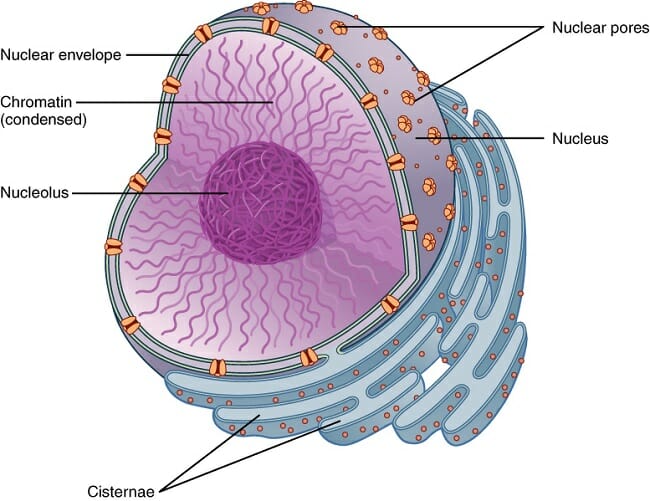(单词翻译:单击)
Leeuwenhoek himself occasionally got carried away with his enthusiasms. In one of his least successful experiments he tried to study the explosive properties of gunpowder by observing a small blast at close range; he nearly blinded himself in the process.
列文虎克自己偶尔也沉湎于个人兴趣。在他的一次最不成功的实验中,他试图通过近距离观察一次小型爆炸来研究火药的爆炸特性,结果他的眼睛差一点被炸瞎了。
In 1683 Leeuwenhoek discovered bacteria, but that was about as far as progress could get for the next century and a half because of the limitations of microscope technology. Not until 1831 would anyone first see the nucleus of a cell—it was found by the Scottish botanist Robert Brown, that frequent but always shadowy visitor to the history of science. Brown, who lived from 1773 to 1858, called it nucleus from the Latin nucula, meaning little nut or kernel. Not until 1839, however, did anyone realize that all living matter is cellular. It was Theodor Schwann, a German, who had this insight, and it was not only comparatively late, as scientific insights go, but not widely embraced at first. It wasn't until the 1860s, and some landmark work by Louis Pasteur in France, that it was shown conclusively that life cannot arise spontaneously but must come from preexisting cells. The belief became known as the "cell theory," and it is the basis of all modern biology.
1683年列文虎克发现了细菌——可是由于显微镜技术的限制,在此后的一个半世纪里,一直停留在那个水平。直到1831年,才有人第一次看到细胞核——它是由苏格兰人罗伯特·布朗发现的。布朗是一位植物学家,经常对科学史怀有兴趣,虽然始终不为人所知。他生活的年代从l773-1858年。他根据拉丁语nucula,意思是小坚果,将他的发现取名为细胞核。到了1839年,才有人真正认识到细胞是一切生命的基质。他就是具有这种洞察力的德国人索多·施旺。就科学洞察力而言,这一发现不仅相对较晚,而且一开始也没有被广泛接受。直到19世纪60年代,由于法国人路易·巴斯德完成的具有里程碑意义的工作,才彻底地证明了生命不能自发地产生,而必须来自一个事先存在的细胞。这一理论被称为“细胞学说”,它是整个现代生物学的基础。


